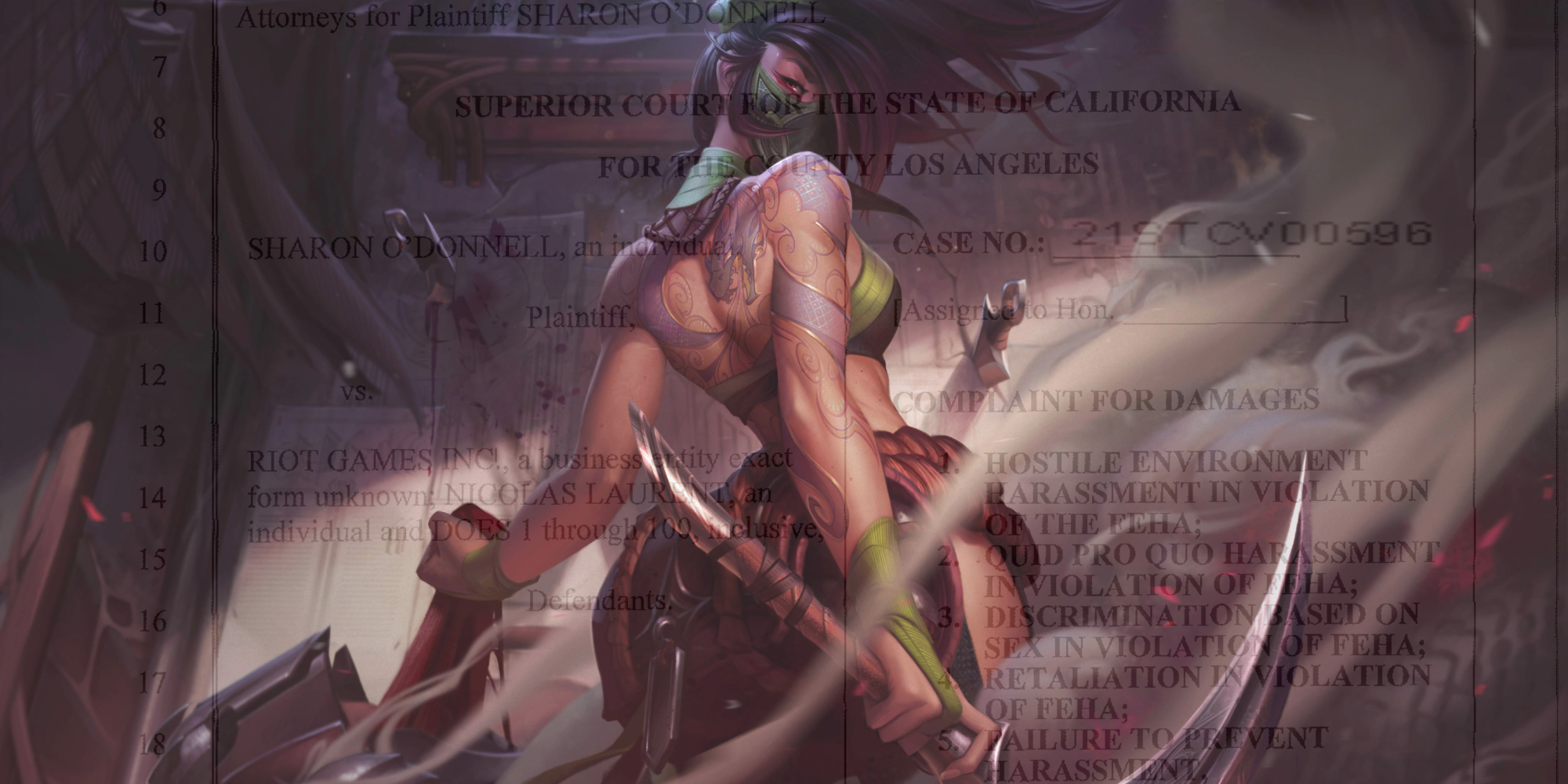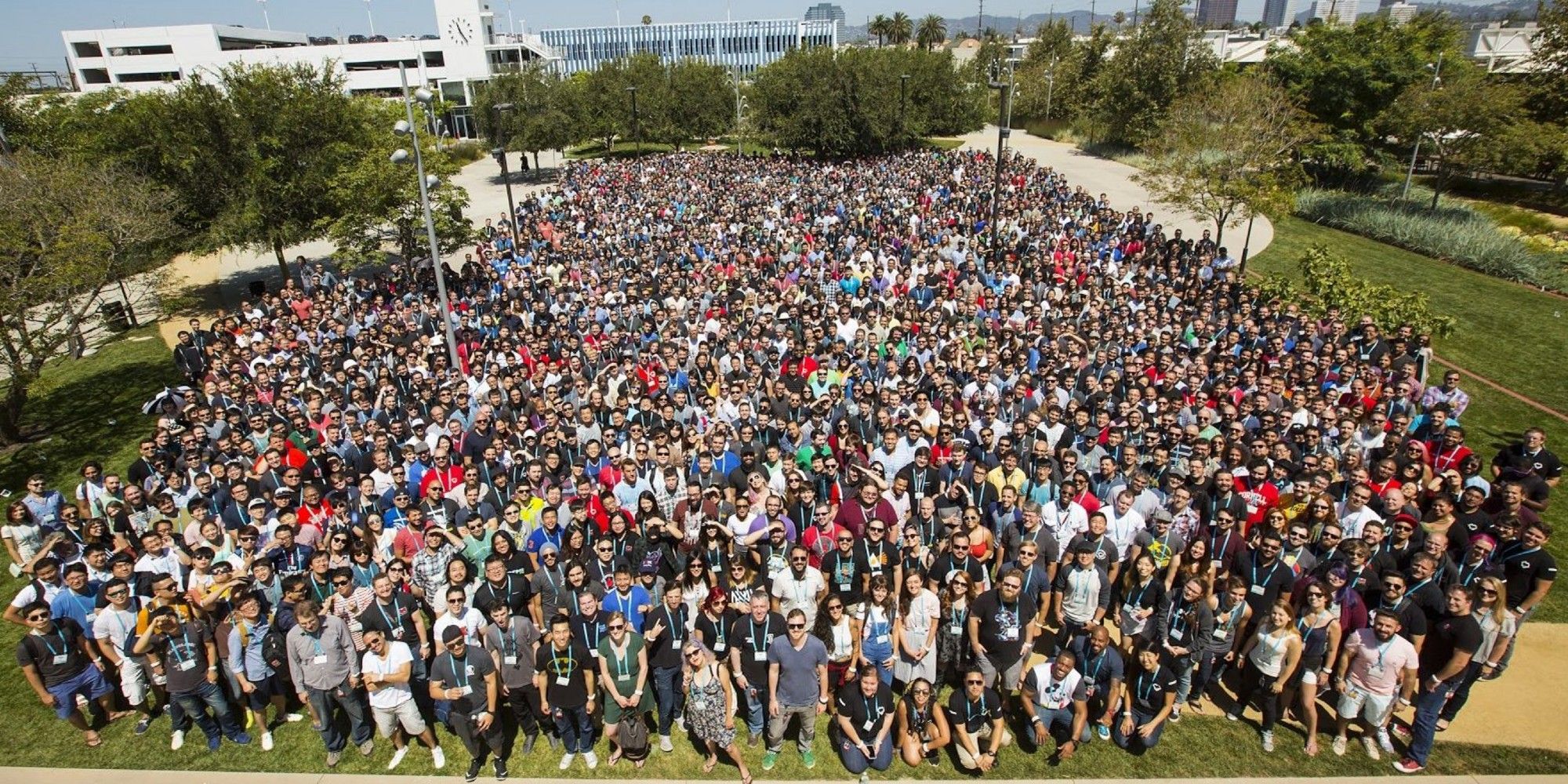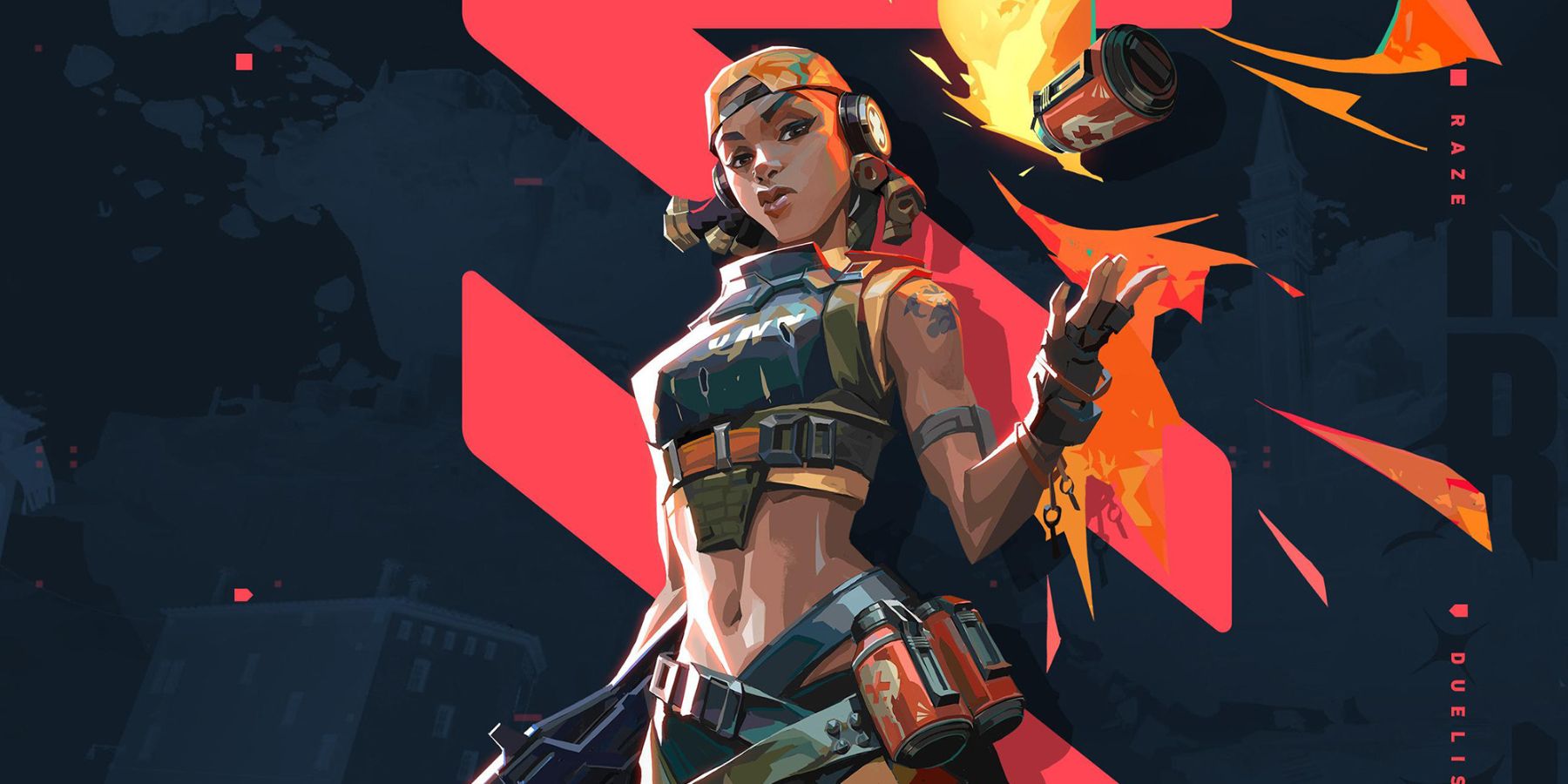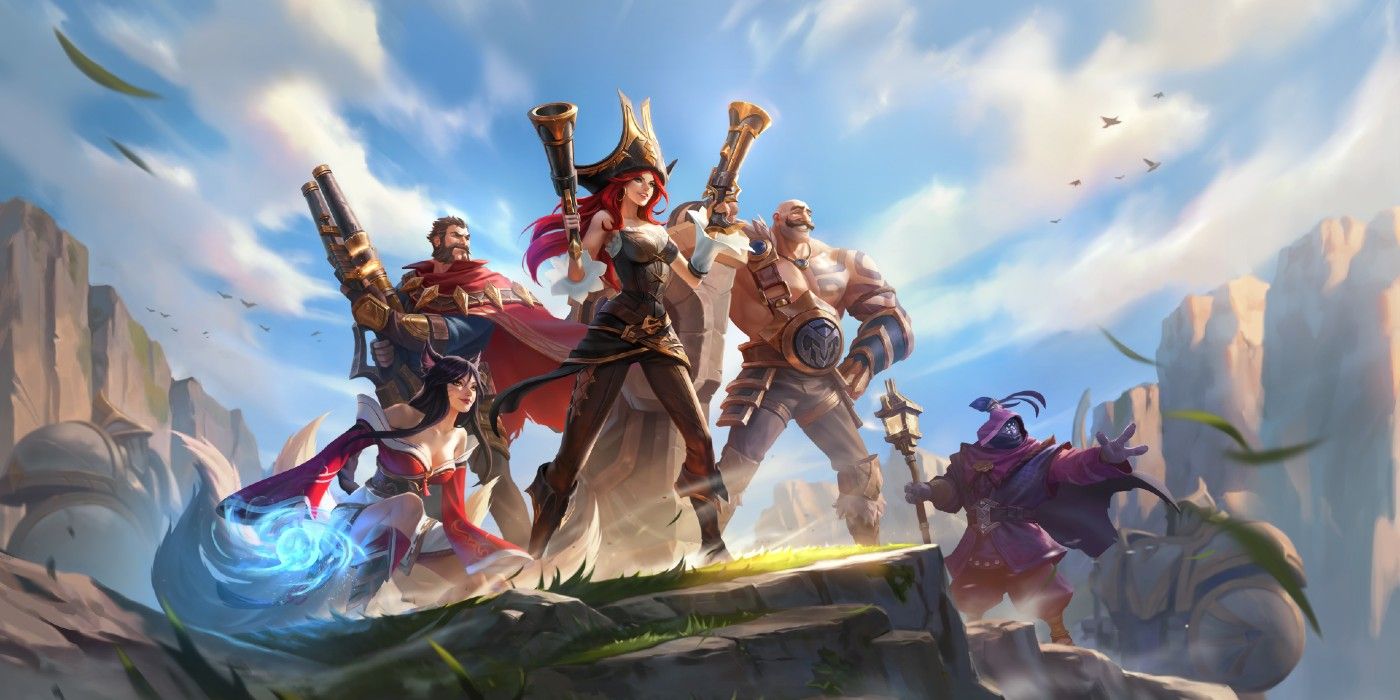Content warning: The following article and links contain references to rape, suicide, verbal abuse, sexual assault, and harassment.
Activision Blizzard, the publisher behind games such as Call of Duty, World of Warcraft, Diablo and Overwatch, came under fire in early August 2021 in light of a lawsuit filed by the California Department of Fair Employment and Housing. The Activision Blizzard allegations include sexual harassment and gender discrimination, and the lawsuit's filing was followed by an employee walkout in protest of the company's culture and its public response to the lawsuit. Much of this is reminiscent of a similar situation at League of Legends developer Riot Games, which is the subject of its own potential California DFEH litigation.
In 2018, a Kotaku report detailed a "culture of sexism" at Riot Games, told via interviews with 28 then-current and former Riot employees. Allegations ranged from women candidates being passed over for open positions to sexual harassment. After the report's publication, more employees came forward, corroborating stories of harassment and an overwhelming "bro culture" at the company. A class-action lawsuit against Riot was filed later that year, and employees staged a walkout in 2019 to protest the company's mandatory arbitration policy.
In response to the allegations, Riot began taking steps to improve its company culture. Riot Games apologized to then-current and former employees, as well as fans and prospective hires; published a diversity and inclusion action plan on its site and has provided regular updates on its various programs; promised thorough investigations into HR claims and an improved reporting process; and committed to increasing its sensitivity and anti-bias training to help employees grow and adapt to the new company culture. Perhaps most notably, Riot hired a Chief Diversity Officer, tasked with driving change in order to foster a culture centered on diversity and inclusion.
When Screen Rant reached out to Riot for comment on the state of its culture, the company directed us to its August 2021 Annual Diversity and Inclusion Progress Report. The report cites "progress in key areas to foster diverse perspectives and drive towards greater equity - all while launching new games for players across the world." It outlines an increase in women and minority representation at the executive level (29% and 22%, respectively, up from the 2020 report's 27% and 18%), monetary pledges totaling over $11 million to various social justice projects, and the founding of the all-women Valorant VCT Game Changers tournament. The report also notes areas that still need work, including a dip in women new hires and a need to "make a concerted effort to push for inclusion across the industry."
Riot Games' Class Action Lawsuit & Forced Arbitration
While Riot has made marked improvements and plans to continue that trajectory, there remain three potential and ongoing lawsuits against the company. The proposed class-action lawsuit against Riot Games is likely the most well known of these litigations. Filed in November 2018 by then-current Riot employee Melanie McCracken and former employee Jessica Negron, the complaint alleged several named women then-currently and formerly employed by Riot did not receive pay equal to their male counterparts and were passed over for promotions because of their gender. They also alleged a pervasive company culture of sexual harassment and misconduct at Riot, including being subjected to the distribution of images of male genitalia. Any complaints made to HR were allegedly later used against them as proof the women were not a culture fit.
Riot Games initially agreed to settle the case for $10 million in December 2019, but the California DFEH intervened in early 2020, alleging the payout could amount to as much as $400 million. Riot rejected that number as outlandish, claiming the DFEH had failed to account for factors such as Riot stock options that would substantially increase a person's salary and calling it "a clickbait number designed to get attention," via PCGamesN. In a statement to PCGamesN, the DFEH explained it used "the same methodology" Riot used to arrive at $10 million:
"Stocks count at Riot Games, according to the verified records the company submitted to the government. It is a significant part of employee compensation, especially for men. DFEH relied on these records to submit a more accurate pay gap estimate to the court. Riot did not. Riot itself concedes in its court filings that stock compensation was not accounted for in any of the pay gap analyses used in the proposed Settlement Agreement.
"DFEH filed the objection to provide information to the court and unrepresented employees and former employees because the parties did not [...] adequately explain why their proposed settlement was reasonable. DFEH was merely pointing out incorrect statements and correcting plaintiffs’ own calculations which were used to justify the settlement."
In light of the new proposed settlement figure, Riot filed a motion to compel arbitration. Because of an agreement included in worker contracts, Riot and its workers are bound to settle disputes such as this via individual, private resolution by a mutually agreed upon, third-party arbitrator, at Riot's expense. There are pros for both parties regarding arbitration - namely, speed and privacy. However, although Riot Games said its arbitration agreements have no confidentiality clause - which means plaintiffs "can communicate about their suit against the company in the same ways they could in court" - a court trial of a class-action civil suit would be a public record, revealing any potential evidence for or against Riot to the public.
In January 2021, an LA judge ruled to uphold arbitration for all plaintiffs but McCracken, who had taken a settlement and is no longer involved in the lawsuit, according to WIRED, and Gabriela Downie. The court ruled that "One plaintiff who never signed an arbitration agreement can litigate all of her claims in court on behalf of herself and the class," according to Dot Esports. This appears to be Downie, but there have been no updates on Downie's potential case since the ruling.
While those plaintiffs who signed agreements to do so are required to go through the arbitration process with Riot, the California DFEH is continuing to pursue a potential class-action suit, as it is not beholden to the arbitration clause and can proceed through the LA Superior Courts as normal. Furthermore, the employees mandated to arbitration can't be excluded from the DFEH's case. Riot may end up fighting the same case on multiple fronts, depending how the DFEH's litigation proceeds.
In response to initial employee outcry against the mandatory arbitration clauses, Riot Games offered a compromise in May 2019. While the litigation is pending, there will be no change to the arbitration policy; however, as soon as the case has concluded, new Riot employees will have the ability to opt out of mandatory arbitration "for individual sexual harassment and sexual assault claims." Riot will also then confirm whether or not existing employee contracts can be changed to include the same option.
Riot Games' Sexual Harassment Lawsuit
More recently, in February 2021, Sharon O'Donnell sued Riot CEO Nicolo Laurent for alleged discrimination and sexual harassment. According to the complaint, O'Donnell was Laurent's assistant from October 2017 to July 2020. The complaint includes allegations that Laurent called O'Donnell beautiful, told her to be more feminine, and looked at her sexually while discussing his underwear size. Laurent also allegedly made several comments about his wife being jealous of beautiful women and invited O'Donnell to "c[*]m" to his home, pointing out his wife would not be there. O'Donnell also alleged that, when she rejected these advances, Laurent retaliated.
In March, Riot Games announced its Special Committee of the Board of Directors had hired third-party firm Seyfarth Shaw to investigate the matter. Upon reviewing the investigation's results, the committee found "no evidence that Laurent harassed, discriminated, or retaliated against the plaintiff" and recommended no action be taken against him:
"This is not a recommendation we take lightly. In cases involving high-ranking executives, we recognize that power dynamics can often give rise to behaviors and biases that infect the experiences of others within the organization in toxic ways. Moreover, in many such cases, reaching a conclusion about these kinds of allegations can be difficult. Most cases of this nature are not black and white; they fall into the grey. However, this was not one of those cases. In this case, we were simply unable to find any evidence that would justify a sanction of any kind against Laurent."
Laurent himself also addressed the allegations in a letter to Riot employees. He denied O'Donnell's accusations, saying "Nothing of that nature, or even remotely close to it, ever happened," and acknowledged he was still "on a journey of learning and growth," along with the company. While Riot Games cleared Laurent of any wrongdoing, the courts have not, as the case is still active.
Riot Games' Wrongful Termination Lawsuit
The final currently ongoing case against Riot Games is the wrongful termination suit of Yoko Colby. Colby alleged repeated discriminatory patterns from Riot, particularly from supervisor Thomas Vu, which culminated in her termination. According to the complaint, Colby began working for Riot in August 2017 as a "blue badge" worker, granted the perks of a contractor. Colby alleged she and several other female workers were held back from becoming full, "red badge" employees, which would allow them to gain perks such as benefits, bonuses, salary increases, and promotion opportunities.
While working at Riot, Vu was Colby's supervisor and allegedly used his authority to sink Colby's projects and prevent her from getting hired as a red badge employee. Colby also alleged Vu favored male workers, encouraged inter-department arguments, and would retaliate against those who tried to prevent sexual comments in the office.
In response to these allegations, Riot Games sanctioned two different third-party firms to investigate and both times found no instance of wrongdoing on behalf of Vu or the company. However, as with O'Donnell's case, Riot's third-party investigations do not equal a legal verdict, and the case is still ongoing. Vu is still an employee of Riot Games, as are several other executives and male employees named in the various outstanding lawsuits.




